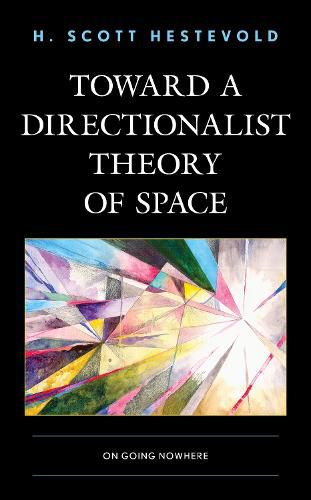Readings Newsletter
Become a Readings Member to make your shopping experience even easier.
Sign in or sign up for free!
You’re not far away from qualifying for FREE standard shipping within Australia
You’ve qualified for FREE standard shipping within Australia
The cart is loading…






In Toward a Directionalist Theory of Space: On Going Nowhere, H. Scott Hestevold formulates a new relationalist theory of space by appealing to the view that the universe is directioned and that there thereby exist spatial relations that Leibniz overlooked-directional relations such that specific directional relations would obtain between any two objects. This directionalist/relationalist theory would allow the reduction of space-implying claims to claims about objects and the directional relations they exhibit, and it would also preserve absolutist intuitions that motivate standard arguments for substantivalist space:intuitions involving, for example, absolute motion and the possibility that all objects are moving uniformly.
Extending the directionalist/relationalist theory of space to the Special Composition Question, Hestevold addresses the problem of when discrete objects compose a whole. He also uses the directionalist/relationalist theory to formulate reductivist theories of boundaries and holes-theories that may allow one to resist the view that boundaries and holes are ontologically parasitic entities. Finally, he explores directionalism/relationalism vis-a-vis spacetime, addressing questions such as whether the findings of modern physics provide adequate evidence that substantivalist spacetime exists; what problems underlie the dispute between spacetime substantivalists and relationalists; and in light of evidence for substantivalist spacetime, what ontological benefit follows from an endorsement of spacetime directional relations?
$9.00 standard shipping within Australia
FREE standard shipping within Australia for orders over $100.00
Express & International shipping calculated at checkout
In Toward a Directionalist Theory of Space: On Going Nowhere, H. Scott Hestevold formulates a new relationalist theory of space by appealing to the view that the universe is directioned and that there thereby exist spatial relations that Leibniz overlooked-directional relations such that specific directional relations would obtain between any two objects. This directionalist/relationalist theory would allow the reduction of space-implying claims to claims about objects and the directional relations they exhibit, and it would also preserve absolutist intuitions that motivate standard arguments for substantivalist space:intuitions involving, for example, absolute motion and the possibility that all objects are moving uniformly.
Extending the directionalist/relationalist theory of space to the Special Composition Question, Hestevold addresses the problem of when discrete objects compose a whole. He also uses the directionalist/relationalist theory to formulate reductivist theories of boundaries and holes-theories that may allow one to resist the view that boundaries and holes are ontologically parasitic entities. Finally, he explores directionalism/relationalism vis-a-vis spacetime, addressing questions such as whether the findings of modern physics provide adequate evidence that substantivalist spacetime exists; what problems underlie the dispute between spacetime substantivalists and relationalists; and in light of evidence for substantivalist spacetime, what ontological benefit follows from an endorsement of spacetime directional relations?